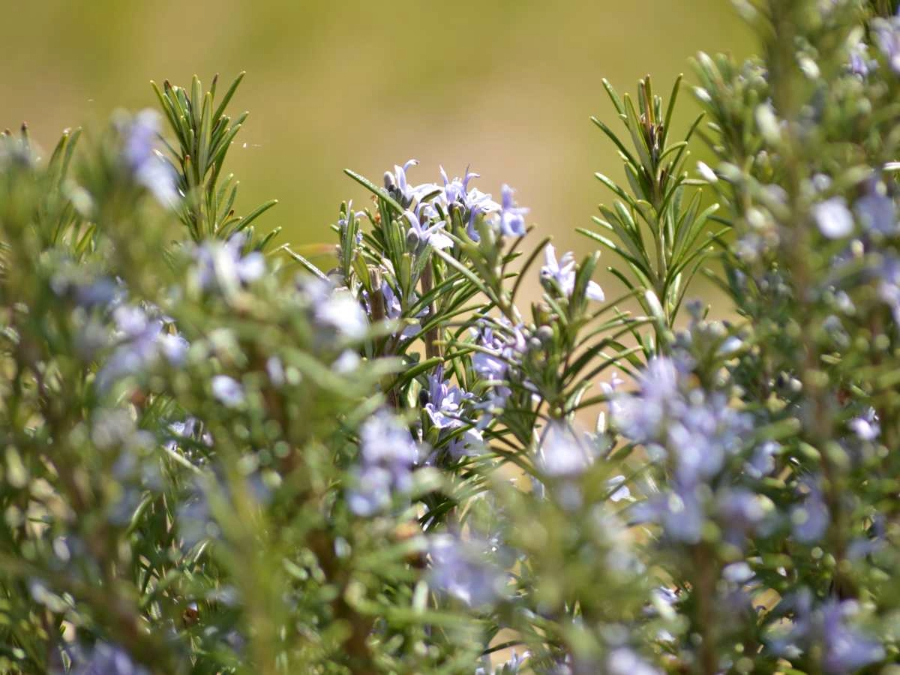Rosemary: The Versatile Herb for Culinary and Wellness
Rosemary is referred to as “Gulmehendi” in Hindi. Around the world, it comes in a variety of forms. Greek mythology legend states that when the goddess Aphrodite emerged from the sea, she was completely covered in rosemary.
What are the benefits of rosemary?
Antioxidants and anti-inflammatory compounds found in abundance in rosemary are believed to support improved blood circulation and immune system function. According to research conducted in laboratories, rosemary is a rich source of antioxidants, which are essential for scavenging dangerous particles known as free radicals.
What is the best use for rosemary?
When cooking, rosemary (Rosmarinus officinalis) is a common spice, particularly in Mediterranean cuisine. It is also a fragrance ingredient in cosmetics and soaps. Rosemary has long been used in medicine to Boost memory.
What other name would you give rosemary?
Other Name(s): Encensier, Herbe Aux Couronnes, Old Man, Polar Plant, Romarin, Romarin Des Troubadours, Romero, Rose de Marie, Rose Des Marins, Rosée De Mer, Rosemarine, Rosmarinus officinalis, Rusmari, Rusmary, Compass Plant, Compass Weed, and so on.
Is this herb Indian rosemary?
Mediterranean-native rosemary (Rosmarinus officinalis) is a herb. The leaf and its oil are frequently used in cooking and pharmaceutical production.
Everything you need to know about rosemary
One ingredient that gives food a fragrant, savoury note is rosemary. Some claim that rosemary can strengthen the immune system, lessen muscle soreness, and enhance memory. It may, however, interfere with certain medications.
A fragrant evergreen herb native to the Mediterranean region is rosemary. In addition to its possible health benefits, it is used as a culinary condiment and to create personal fragrances. It belongs to the Lamiaceae family of mints, which also includes a variety of other herbs like lavender, thyme, oregano, and basil.
The herb is a good source of iron, calcium, and vitamin B-6 in addition to tasting good in recipes like rosemary chicken and lamb.
While teas and liquid extracts are made from fresh or dried leaves, it is usually prepared as a whole dried herb or as a dried powdered extract.
The herb’s therapeutic qualities have been praised since ancient times. Traditionally, rosemary was used to ease muscle soreness and enhance memory.
Quick facts about rosemary
It is a perennial plant that lasts for more than two years. Cooking with the leaves is common. Health benefits could include better digestion, focus, and brain ageing. Pulmonary edoema, vomiting, and coma may occur from extremely high dosages. Rosemary is a multipurpose herb with a unique flavour and aroma that is frequently used in both culinary and non-culinary contexts. Here are some typical applications for rosemary:
Uses in Cooking
Add some spice.
Rosemary is a common seasoning for roasted meats, especially lamb and poultry, as well as vegetables and potatoes.
To improve flavour, add it to marinades, rubs, and dressings.
Baking:
For a flavorful and savoury addition, you can add rosemary to bread, focaccia, and other baked goods.
Mixtures:
You can infuse oils, vinegar, or even honey with rosemary to give these liquids a distinct flavour.
Stews and Soups:
Fresh or dried rosemary can be added to soups, stews, and broths for a savoury herbal flavour.
Herbal Butter:
To make a flavorful herb butter, stir finely chopped rosemary into softened butter. You can use this as a topping for grilled meats or as a spread for bread.
Uses Not Related to Food: Aromatherapy
In aromatherapy, the scent of rosemary is frequently used to encourage calmness and relaxation. For this, rosemary essential oil is frequently used.
Usage in Medicines
Herbal medicine has long employed rosemary for its many health advantages, which include better digestion and sharper memory. It has ingredients that might be anti-inflammatory and antioxidant.
Blenders and Sachets:
Dried rosemary can be added to sachets to fill drawers and closets with a pleasant scent, or it can be used in potpourri blends.
Handmade Cleaning Supplies:
Vinegar infused with rosemary can be used as an all-natural cleaner. One possible explanation for rosemary’s cleaning efficacy could be its antimicrobial characteristics.
For ornamental purposes
Stems of rosemary, either fresh or dried, can be added as a garnish to dishes or as a decorative element to floral arrangements.
Repellent:
Some insects are said to be repulsed by the scent of rosemary. Putting sachets or rosemary plants around the house could help keep pests away. Because of its potent flavour, rosemary should always be used sparingly. A delightful touch to many aspects of daily life, rosemary can be used in cooking, crafts, or just for its aromatic qualities.
Source

